
Looking at the big world of microbiology through the smallest lenses
Antoni van Leeuwenhoek, the father of microbiology, died 300 years ago. 2023 has therefore been designated the Antoni van Leeuwenhoek year. The new Unimaginable exhibition in Rijksmuseum Boerhaave is about the amazing world that Van Leeuwenhoek made visible. What was so special about the way he worked? And what is the connection between this Delft professor and our Leiden University?
Antoni van Leeuwenhoek is largely known for his self-made microscopes. Although he was not the first person to construct a microscope, his devices were very special. He used only a single lens, so his Leeuwenhoek microscopes are very small. His microscopes may have been tiny, but the discoveries he made were enormous.

Master in specimens
Although his microscopes were of very high quality, that does not necessarily mean that they are sensitive enough to make observations in the microworld. Skills in preparing, stainig, slicing and propagating are just as essential. The exhibition explains these skills and why they are so important. Van Leeuwenhoek was a master in preparing specimens. He was, for example, able to slice his specimens so thinly that they were just a single cell thick. His skills opened up a microworld for his contemporaries, and set us on the path to progress in microbiology.
As well as Van Leeuwenhoek’s excellent skills and brilliant microscopes, he possessed another important trait that was a huge advantage to him: his work gave him enormous pleasure. He was very curious and wanted to know everything. This passion is reflected in his letters, which are also exhibited in the museum. Right up to his death, he was occupied in bringing new worlds to light.

Books from the Leiden University Library
A book by Johannes Swammerdam, a contemporary and rival of Van Leeuwenhoek, is also on display in the museum. Swammerdam wanted to produce a kind of Bible of the natural world, and he drew everything that he saw under the microscope. This book, loaned from the Leiden University Library (UBL), is the manuscript of his drawings. As well as this work, there is also a book with annotations made by Christiaan Huygens, also on loan from the UBL. Huygens became apprenticed to Van Leeuwenhoek; he learned to use microscopes and made the very first drawings of micro-organisms. At the time, Van Leeuwenhoek described them only in words.
Present-day microbiology
Van Leeuwenhoek is thus regarded as the father of microbiology. Thanks to his ‘opening up’ of the microworld, new observations are still being made even today. In Leiden, Professor of Ultrastructure Biology Ariane Briegel, for example, conducts research on the chemical noses of bacteria using the most sensitive electron microscope in the world, and Professor of Molecular Biotechnology Gilles van Wezel researches antibiotic resistance. They explain their research in the exhibition.
Rijksmuseum Boerhaave doesn’t just let you look through the eyes of Van Leeuwenhoek, but gives you a broad perspective on the development of microbiology, up to the most state-of-the-art discoveries.
-
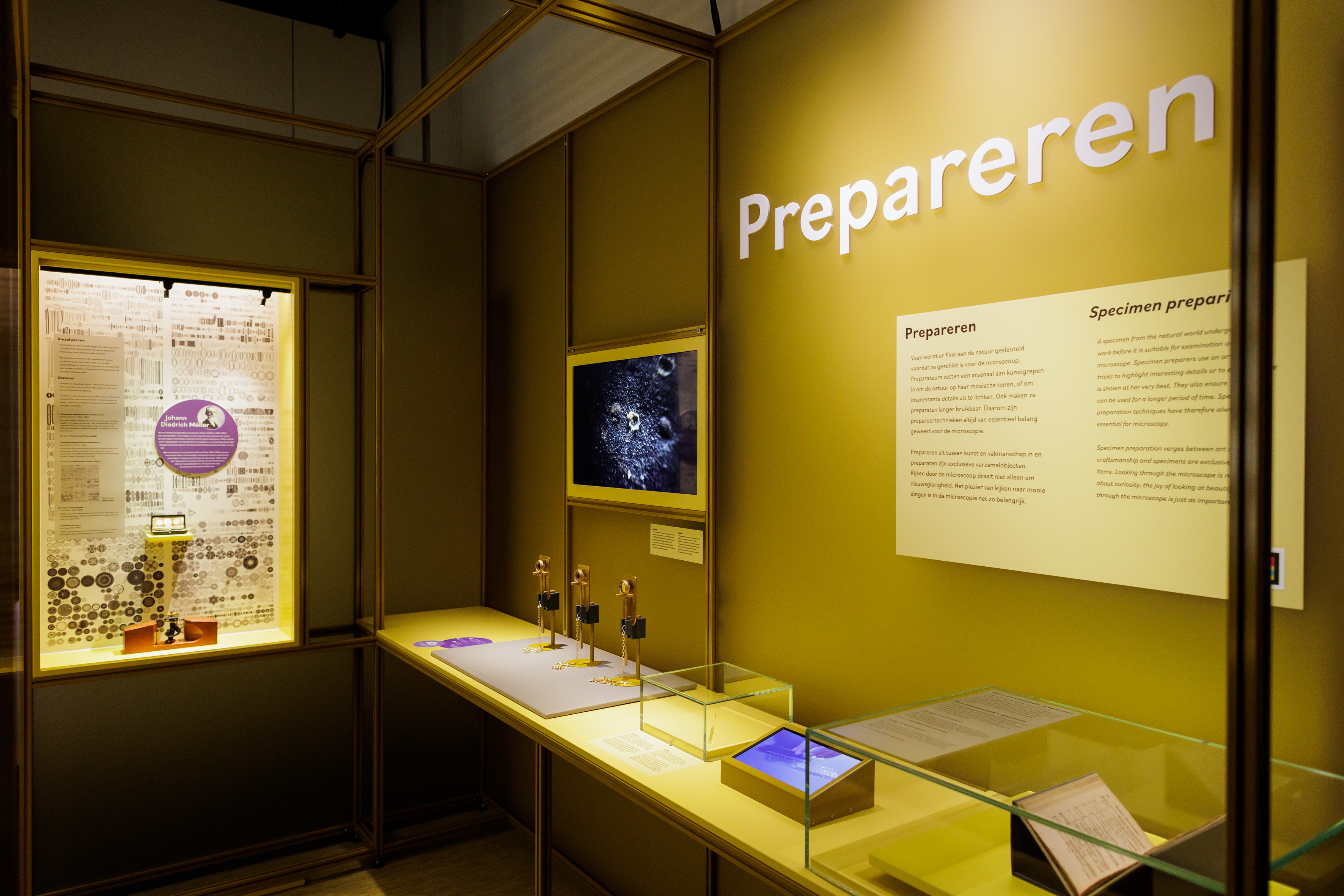
The theme of Specimens in the exhibition about Antoni van Leeuwenhoek in Rijksmuseum Boerhaave -
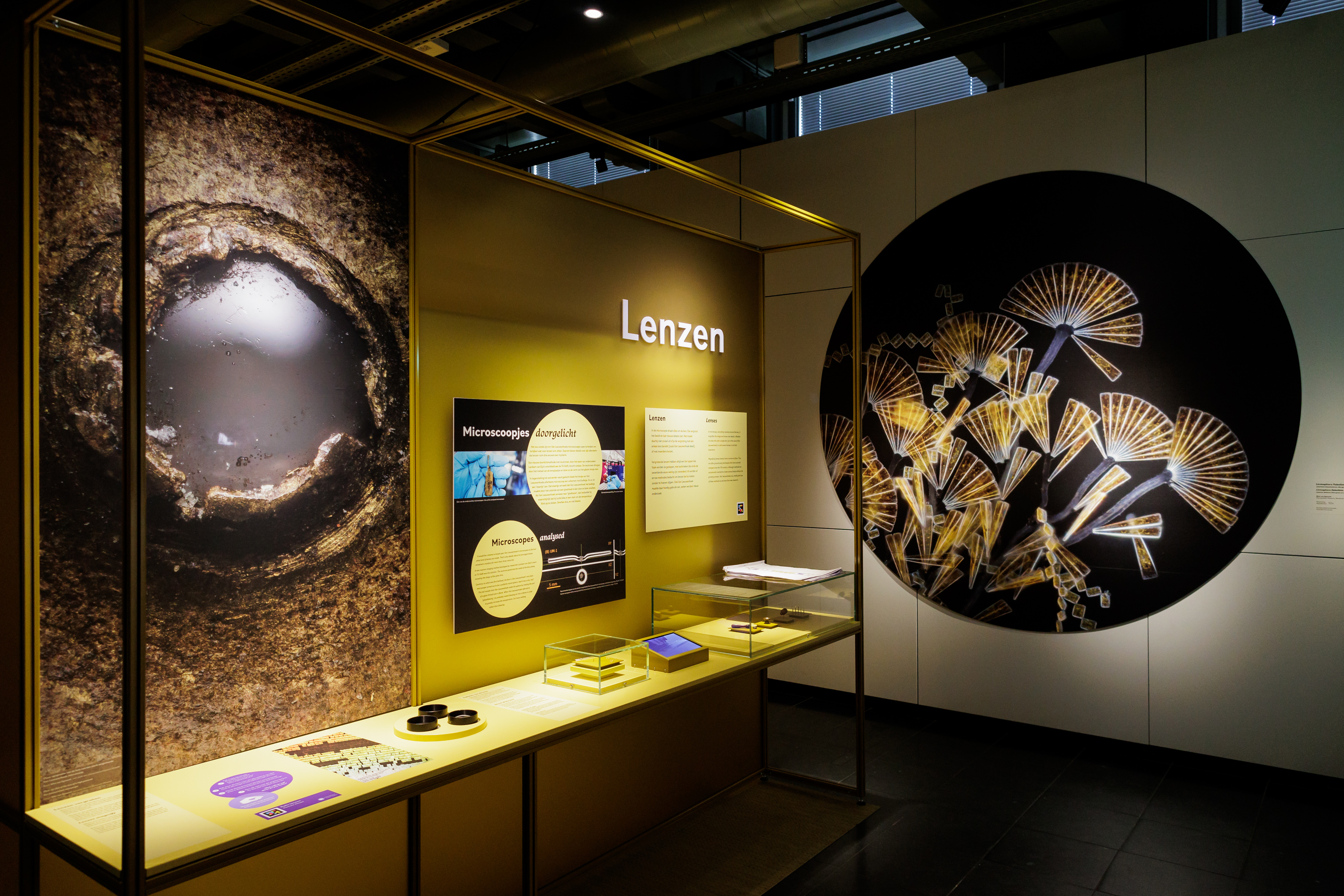
The theme of lenses in the exhibition about Antoni van Leeuwenhoek in Rijksmuseum Boerhaave -
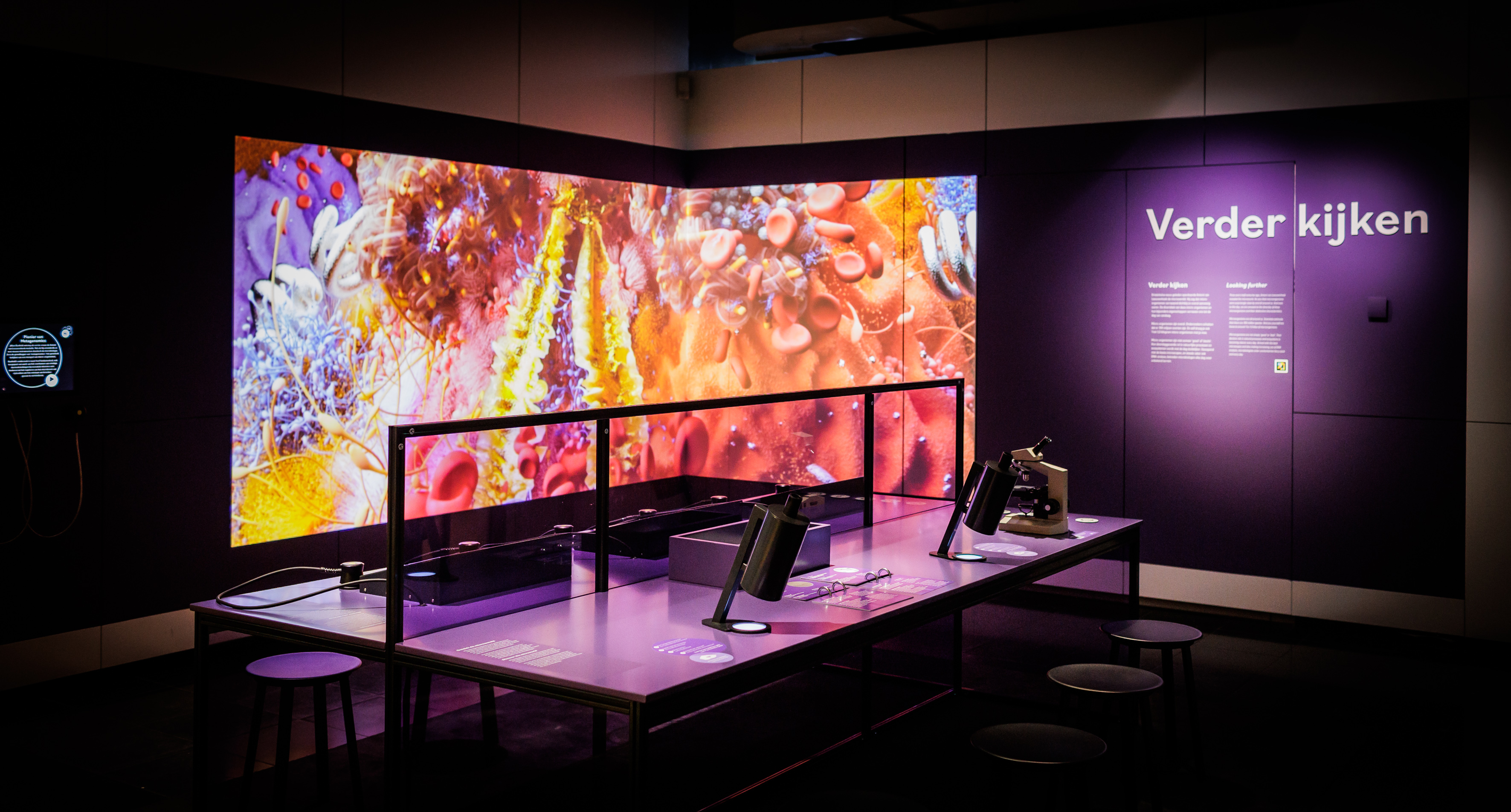
Modern microbiology in the exhibition about Antoni van Leeuwenhoek in Rijksmuseum Boerhaave -
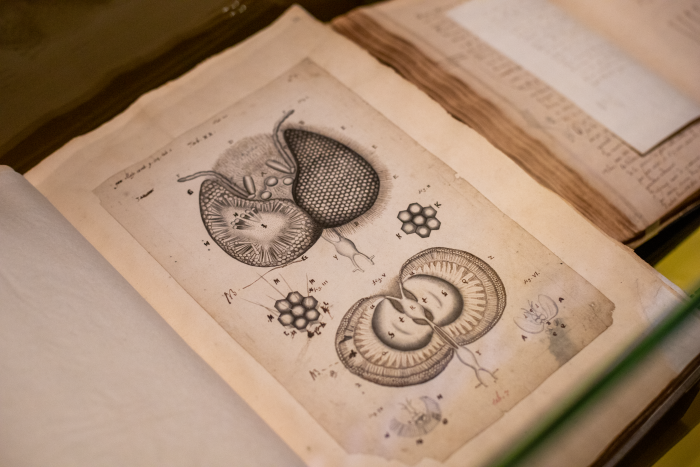
Book written by Johannes Swammerdam on loan from the University Library -
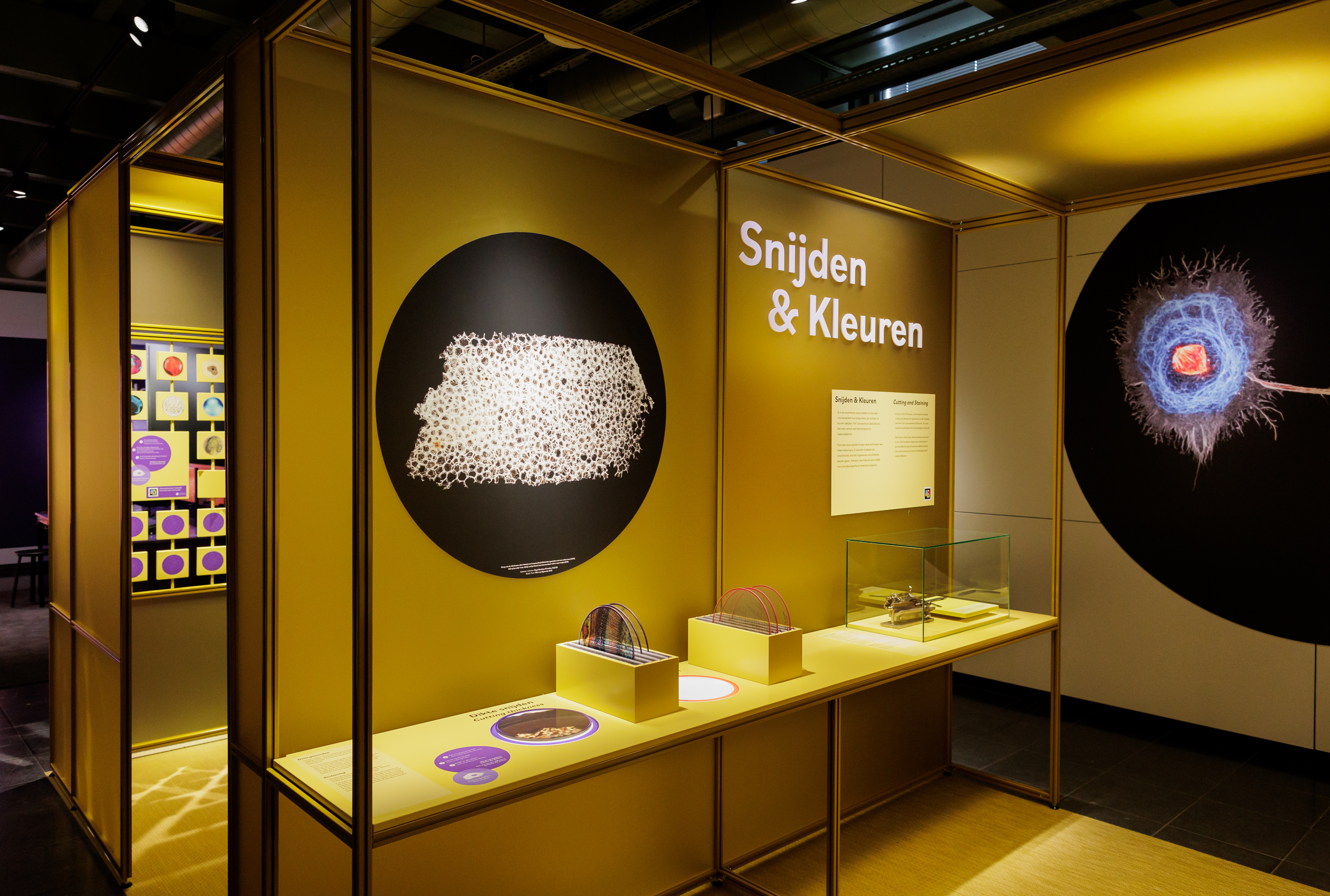
The theme of Slicing and Staining in the exhibition about Antoni van Leeuwenhoek in Rijksmuseum Boerhaave
Antoni van Leeuwenhoek year!
The year 2023 marks the 300-year anniversary of the death of Antoni van Leeuwenhoek at the age of 90 years, following a life filled with wonder, observations and discoveries. The discovery of bacteria, the structure and functioning of plants, animals and humans, the unravelling of reproduction: all these are breakthroughs from Van Leeuwenhoek's time. Using his self-made lenses, he revealed a micro-universe that had never before been seen by human eyes. Imagine discovering a completely unknown world. How do you know what you are seeing? How can you best show it? And how do you convince other people that the world is very different from what they think? In 2023 we commemorate Antoni van Leeuwenhoek’s sense of wonder and his expertise. You can find more information on this site about what you can do, see and above all discover at the exhibition!
Visualizing the Unknown
Rijksmuseum Boerhaave aims to use the ‘Visualizing the Unknown’ project to research how seventeenth-century imagery and methods of representation are still present in contemporary science.
The Unimaginable exhibition about Antoni van Leeuwenhoek can be seen until 7 January 2024 in Rijksmuseum Boerhaave.
Text: Nynke Smits
Images: Fien Leeflang and Fred Ernst
